Sometimes after a cup of coffee you feel sick. The concept of “bad” is different for everyone - you may feel weak, something similar to panic attacks, abdominal pain or indigestion, tachycardia, dizziness, etc. This can happen to people with chronic diseases as well as to those who appear to be healthy. Some people know about this peculiarity, while others suddenly feel ill after drinking coffee. In any case, you need to know what symptoms may be associated with the problem and what to do about them.
In what situations can you feel sick after drinking coffee?
Most often, things get worse from an overdose of coffee. At the same time, it is not at all necessary that you really drank a lot of it, especially since “a lot” is a relative concept, and we can only talk about the amount of caffeine that the body cannot handle at the moment. Here is just an approximate list of diseases and situations in which even one cup of coffee can make you feel bad:
- Vegetative-vascular dystonia;
- Chronic cardiovascular diseases;
- Tachycardia and arrhythmia;
- High blood pressure;
- Diseases of the gastrointestinal tract;
- Stress;
- State of lack of sleep;
- Illness or weakness of the body.
Most often, things get worse if you drink coffee on an empty stomach, especially if your body is weakened.
Workout cocktail
Did you know that drinking one cup of coffee immediately before your workout can improve your performance in the gym or on the treadmill? Scientists from the UK studied a group of triathletes who were able to improve their results by 5% by drinking a small portion of an invigorating drink before training. This became possible due to the partial dulling of pain in the muscles during heavy exertion.
Not cutlets, but tenderness itself - and all thanks to a budget vegetable: recipe
US scientists classified people according to their curiosity
What do you do at 109 years old? Zhenya Tsetskhladze takes care of a 2-year-old boy
Why can you feel sick after drinking coffee?
Caffeine mainly affects three main systems of the body: the brain, heart and blood vessels, as well as the stomach and intestines. Let's look at why it might be bad in each case.
Coffee hurts or makes you dizzy
Caffeine affects the blood vessels of the brain, narrowing them and blocking the production of adenosine, which dilates the blood vessels, maintaining them normal. If the vessels are compressed strongly and sharply, the head begins to feel dizzy from the lack of oxygen and blood, and a headache is felt.
Heart hurts, tachycardia from coffee
Caffeine stimulates the pituitary gland, which in turn releases hormones into the blood that affect the adrenal glands. The adrenal glands produce adrenaline, and therefore the pupils dilate, the pulse quickens, and tachycardia appears. The heart must pump blood faster, and all blood vessels are narrowed.
Nausea, diarrhea after coffee
Coffee, especially with grounds, actively irritates the walls of the gastrointestinal tract, stimulates the production of gastric juice and peristalsis. Symptoms such as nausea, stomach pain, abdominal pain may be felt, and quite often coffee can act as a laxative.
Causes of poor health when smoking
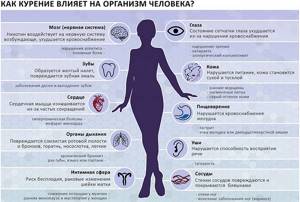
Cigarette smoke contains a large number of toxic substances - from tars to carcinogens. It becomes clear why you feel bad after smoking cigarettes. Nicotine affects not only the lungs, but also the circulatory, nervous systems, stomach, heart, kidneys, intestines, liver, and brain. The sexual functions of men and women are subject to the negative influence of cigarettes.
- Russian doctors are considering 2 options for the coronavirus epidemic
- 6 things you need to know about high blood pressure
- Subsidies for housing and communal services for pensioners - terms of appointment and procedure for registration
Circulatory disorders
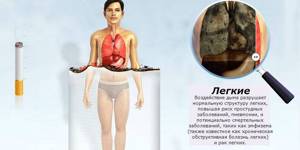
When nicotine enters the lungs, it impairs the elasticity of the arteries and narrows their lumen. Vasospasm occurs, which impedes blood flow to the internal organs. As a result, the heart works harder, which leads to muscle exhaustion. Cigarettes also change the composition of the blood and impair its ability to clot. Over time, there is an increase in blood pressure, which manifests itself as chronic hypertension.
Nicotine also has a detrimental effect on blood circulation in the brain. In this case, the carotid arteries, which supply the main organ, are affected. The result is conditions such as impaired coordination, memory, paralysis or stroke.
Oxygen starvation
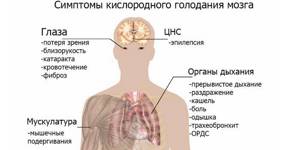
When smoking, the lungs are filled not only with smoke, but also with carbon, combustion products. This interferes with the normal flow of blood into the tissues. It carries oxygen, and if there is not enough of it, starvation occurs. When the deficiency reaches the brain, vascular spasm occurs, which is the cause of dizziness when smoking.
Withdrawal syndrome

If nicotine does not enter the body for 2–3 hours, the person becomes irritable. His hands shake, he has a cough, confusion or shortness of breath, his blood pressure decreases or his appetite increases. All these symptoms are called withdrawal syndrome. It often occurs in those who quit smoking. This happens because the body is accustomed to nicotine, and its absence causes withdrawal symptoms in a person.
- Cream for pancake cake - step-by-step recipes for making custard, curd, with condensed milk or sour cream
- Homemade mosquito trap - how to make it yourself with photos
- 20 causes of baldness and tips on how to stop it
Toxins in cigarette smoke
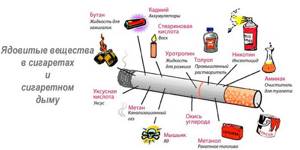
10–12 puffs contain 4 thousand chemical compounds. Of these, about 60 are life-threatening. With prolonged smoking, poisons gradually poison human organs and destroy brain cells. First, warning signs appear - nausea, a lump in the throat after smoking, headaches or rapid heartbeat. If a person continues to poison himself, serious problems develop, such as oncology or a heart attack.
Toxic substances in cigarette smoke:
- lead;
- cyanide;
- hydrocyanic acid;
- polonium or bismuth;
- formaldehyde;
- arsenic, etc.
A surge of adrenaline in the blood
The hormone is produced during stressful situations, which include the use of cigarettes. Smoking at an early stage causes a surge of energy in a person, causeless euphoria due to the effect on the brain and its pleasure receptors. Small doses of nicotine increase adrenaline levels, while large, regular doses decrease them. For this reason, the smoker quickly ceases to experience joyful sensations and cheerfulness from cigarettes.
Gastrointestinal tract dysfunction
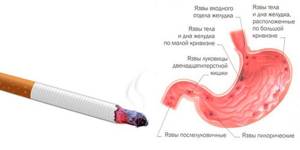
Harmful toxic substances enter the mouth along with smoke. There they combine with saliva and increase its quantity. This entire mixture reaches the stomach. As a result of irritation of the villi, the muscles of the organ contract chaotically, trying to get rid of the poison. A stomach spasm occurs. He is the culprit of why cigarettes make you sick. This symptom is also observed when there is a surge of adrenaline in the blood with dizziness.
Is coffee from a coffee shop bad or homemade?
Those who buy a regular glass of coffee from their favorite coffee shop are much less likely to suffer from poor health after drinking coffee. It uses a coffee machine and a standard recipe, meaning the caffeine content in your favorite latte will almost always be the same. At risk are lovers of natural coffee who prepare the drink themselves, in a Turkish coffee, and usually calculate the dosage only approximately.
- First, it could be a new variety that has more caffeine, or a blend with a higher Arabica content. The point is that in the usual dose, for example, a spoon per cup, you will get more caffeine, but the body is not used to this.
- Secondly, it is difficult to calculate the number of grams - they use different spoons at home, and the slide can be larger or smaller. And if you grind the beans before cooking, it is even more difficult to calculate the amount, and it turns out that there is more ground coffee in a Turk.
- Thirdly, a lot depends on how the drink was prepared. If it was simmered over low heat, and then stood in a pot for a while along with the grounds, the concentration of caffeine in it will be much higher than if you cook it relatively quickly and pour it through a filter or strain the grounds.
Even slightly exceeding the usual dosage of caffeine can cause a person to feel unwell. However, this feeling usually passes fairly quickly.
Bad from instant coffee
Instant coffee more often than natural coffee causes stomach pain, weakness, nausea, and sometimes you may feel cold sweat. And in this case, it’s not just about caffeine, although there is usually more of it, but also about all the chemical additives. The share of natural grain in soluble powder or granules is 15-20%, everything else is dyes, stabilizers, preservatives, volume powders, etc. The body reacts to such a “chemical attack” much stronger.
This drink makes people happy
Scientists from Harvard claim that caffeine, in addition to stimulating the central nervous system, can also act as a mild antidepressant. A cup of coffee stimulates the production of certain neurotransmitters, including serotonin, dopamine and norepinephrine. This is precisely why, according to epidemiological studies, there are so few depressed people among avid coffee drinkers.
Now let’s look at a question that worries many coffee lovers. Why do I feel tired during the day after drinking coffee? It turns out that it is not caffeine that can cause negative consequences from your favorite drink, but habitual additives, such as sugar. It is this circumstance that provokes excessive cravings for sweets, as well as some other side effects. In addition, if you overdo it with coffee during the day, your body, or rather the adrenal glands, may rebel and make itself known by fatigue.
“Come in right away, don’t delay”: how to properly plunge into the water at Epiphany
So that Saint Gregory does not punish. Sadness and work: what not to do on January 21
Hybrid aircraft engines will reduce nitrogen oxide emissions by 95%
However, scientists have not fully identified a direct relationship between excessive coffee consumption and fatigue. Additional factors that may need to be examined include age, sensitivity to caffeine, or health status. If you feel that drinking your favorite drink makes you feel a little sluggish, you need to heed the following tips.

What to do if you feel sick from coffee?
If every time you drink coffee you feel bad, you should either seriously reduce the dose, or try decaffeinated coffee, or maybe even give it up altogether. But usually it happens bad once, almost by accident, and in this case there is no need to panic: usually everything goes away in about 15-20 minutes. If you feel nauseous, you can try to get rid of the drink you drank; if not, there are ways to help your body return to normal faster:
- If you feel weakness, dizziness, tachycardia, pain in the head, it is advisable to sit down or lie down, ensure an influx of oxygen, perhaps raise your legs above your head so that oxygen flows to the brain. If it's freezing, you can wrap yourself up.
- If there is pain in the heart, increased excitability, pain in the temples, rapid pulse, fever, provide access to air and try to do a few physical exercises, just to speed up the metabolism and the caffeine is processed faster.
In any case, it is good to drink water, you can eat a banana, drink milk. Lemon water may help. Possibly sedatives for the heart and blood vessels.
Conclusions:
- Even a completely healthy person can feel ill after drinking coffee. If this happens once, there is nothing wrong with it.
- Coffee brewed in Turkish coffee may make you feel worse if you do not calculate the dosage or allow the drink to brew with grounds.
- Instant coffee makes you feel sick because it contains a lot of chemical additives that can cause an individual reaction.
- Most often, coffee makes you sick if the body is weakened, the person did not get enough sleep, or drank too much coffee.
- If you feel sick, drink water or milk to neutralize the caffeine.











